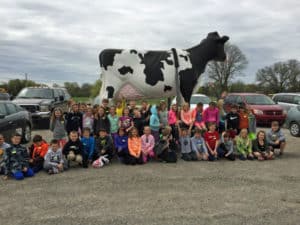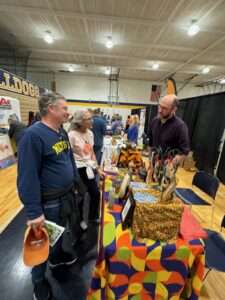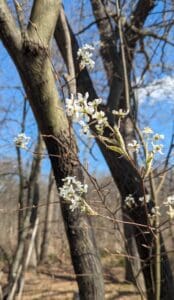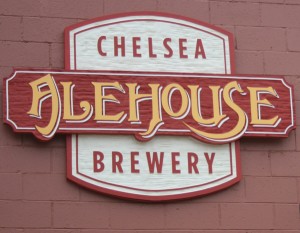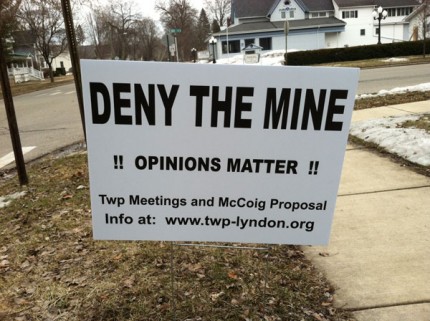
(Chelsea Update would like to thank the Friends of Chelsea and Lyndon Township for the information in this guest column.)
The proposed gravel pit just north of Chelsea would depress property values in Lyndon Township by at least $17 million, according to research conducted by the Friends of Chelsea and Lyndon Township (FCLT).
In a report submitted to the Lyndon Township Planning Commission, FCLT documented property values impacts and other very serious consequences likely to result from a sand and gravel mining operation proposed by McCoig Materials, Inc. The report is available at www.denythemine.org
The report was submitted to the Lyndon Township Planning Commission on July 28, the deadline for public comments on the request for a Special Land Use permit.
The Planning Commission has tabled the issue for six months until November, to further study the issue that generated a public outcry from hundreds of concerned citizens and public officials and is the reason for the “Deny The Mine” signs in lawns around the community.
The issue prompted three public hearings and resulted in hundreds of emails and letters to the township.
FCLT President Tim Eder stated, “It is vital that Chelsea area residents understand that this issue is not over. It is only tabled for now.”
The FCLT team constructed a database of property values built on a model developed by experts from Auburn University to demonstrate a “…significant decrease in property values, subsequent taxes generated and economic activity that would result from mining activities.” This would also result in decreased spending throughout the region, including the City of Chelsea.
The proposed mine would generate 60 to 80 tandem-trailer gravel trucks making round trips daily. The July 28 report cites documents from McCoig consultants that revealed this would increase the number of trucks from 3.2 per hour at present to 19.2 per hour during the proposed mine’s operating hours.
This would cause an additional gravel truck traveling on Main Street through the heart of Chelsea every 3 minutes and 45 seconds and result in “… serious traffic safety consequences. Due to slow reaction time, from an inability to speed up or slow down quickly…” The FCLT report said, “It is common sense that this truck traffic will harm downtown Chelsea and the businesses it supports. Moreover, McCoig has presented no evidence to the contrary to assure us that such consequences will not occur.”
The FCLT report also said that total direct and indirect economic activity generated by visitors to the Waterloo-Pinckney State Recreation Areas is estimated at $19.9 million, annually. The report stated the “… McCoig gravel mining operation will have very serious consequences by reducing the number of visitors to the region and diminish the economic activity that these visitors generate.”
The proposed mining site is in the heart of the recreation areas and is adjacent to Washtenaw County’s Park Lyndon North and South. The Waterloo-Pinckney Trail runs along the boundary of the proposed site. It is across from Green Lake and the Green Lake Campground. These public spaces are visited year-round by hundreds of thousands of in-state residents as well as out-of-state tourists.
The proposed sand and gravel mine would have very serious consequences to the health, safety and welfare of the residents of Lyndon Township and the City Chelsea. The FCLT report said, “Adverse impacts to drinking water can be expected to occur due to impacts to groundwater levels and increased levels of arsenic and nitrates resulting from excavation of the sand and gravel mine.” The excavation could also impact well levels, air quality by the presence of crystalline silica-borne dust and the impact of noise vibrations.
A number of highly-respected experts reviewed the hydrogeological modeling presented by McCoig. They concluded that the “… hydrogeological studies performed by McCoig are overly simplistic…and are completely inadequate for predicting the impacts of the mining operation on residential wells, lake levels, water quality or wetland ecology.”
Over 50 percent of Lyndon Township lies within the Waterloo-Pinckney recreation areas’ 31,000 acres. Park Lyndon North and Park Lyndon South lie within the township borders. As the FCLT report indicated, “… the area is widely recognized for the quality its natural resources.” The proposed sand and gravel mine would have very serious consequences to the ecological integrity of the region. It is an ideal habitat for the Indiana Bat, Poweshiek Skipperling butterfly, Massassagua rattlesnake, Blanding’s turtle and others, including some listed by the U.S. Fish and Wildlife Service as threatened or endangered or currently being proposed for such listing.
The FCLT report concluded that, “The public good of denying the mine permit versus the public harm that would be caused by approving the permit is a devastating difference. When there is no demonstrated need for a sand and gravel mine…and the damage to area residents, local tourism, and wildlife habitat is so severe, it is important to deny the sand and gravel mine its special land use permit.”
The FCLT report totals over 40 pages, with an additional 85 pages of appendices and expert testimony. It is available here.






